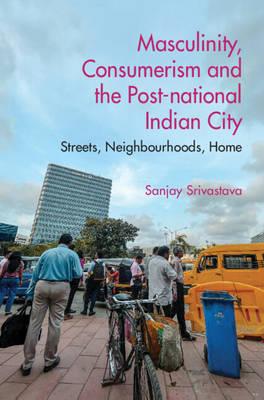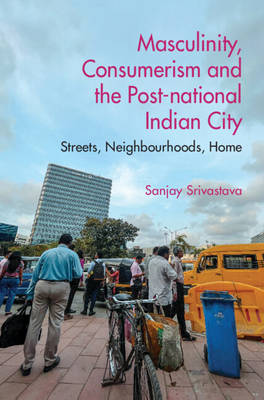
- Afhalen na 1 uur in een winkel met voorraad
- Gratis thuislevering in België vanaf € 30
- Ruim aanbod met 7 miljoen producten
- Afhalen na 1 uur in een winkel met voorraad
- Gratis thuislevering in België vanaf € 30
- Ruim aanbod met 7 miljoen producten
Zoeken
Masculinity, Consumerism and the Post-National Indian City
Streets, Neighbourhoods, Home
Sanjay Srivastava
Hardcover | Engels
€ 152,95
+ 305 punten
Omschrijving
Imagining the city as a series of interconnected spaces, the book explores how several such connections - between the home and the street, family and public spaces, religious and non-religious contexts, for example - relate to the topic of masculinity. How do men - elite, subaltern, consumers, 'heads' of the family, members of 'Hindu fundamentalist' organisations, readers of pulp fiction and 'footpath pornography', those who admire the 'strong' political leader - move between these spaces, define them and are defined by them? Urbanisation in India is a vibrant site of an extraordinary cultural, social and economic churn, a context of both the consolidation of masculine identities as well as anxieties regarding their place in the city. The book suggests that sustained and in-depth engagements with specific historical and social contexts avoids tendencies to imagine cities as nodes of comparison that frequently generates universal models of urbanism.
Specificaties
Betrokkenen
- Auteur(s):
- Uitgeverij:
Inhoud
- Aantal bladzijden:
- 210
- Taal:
- Engels
Eigenschappen
- Productcode (EAN):
- 9781009179867
- Verschijningsdatum:
- 5/01/2023
- Uitvoering:
- Hardcover
- Formaat:
- Genaaid
- Afmetingen:
- 152 mm x 228 mm
- Gewicht:
- 408 g

Alleen bij Standaard Boekhandel
+ 305 punten op je klantenkaart van Standaard Boekhandel
Beoordelingen
We publiceren alleen reviews die voldoen aan de voorwaarden voor reviews. Bekijk onze voorwaarden voor reviews.











